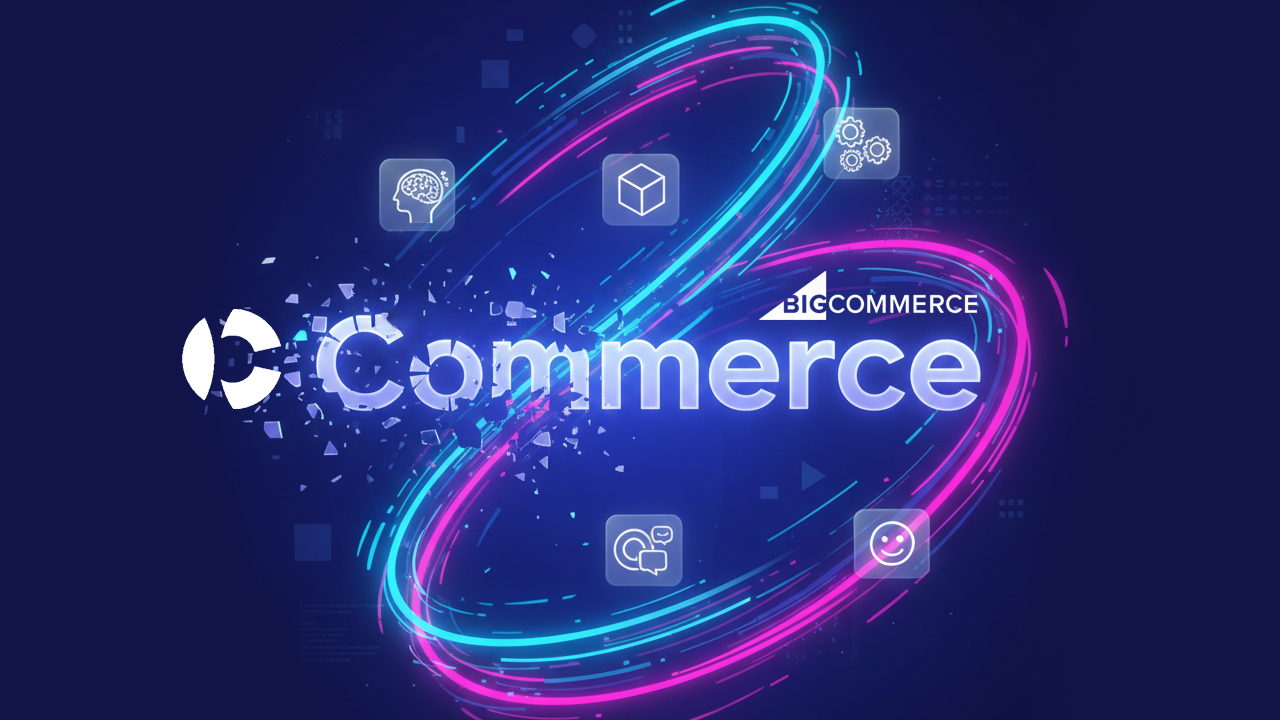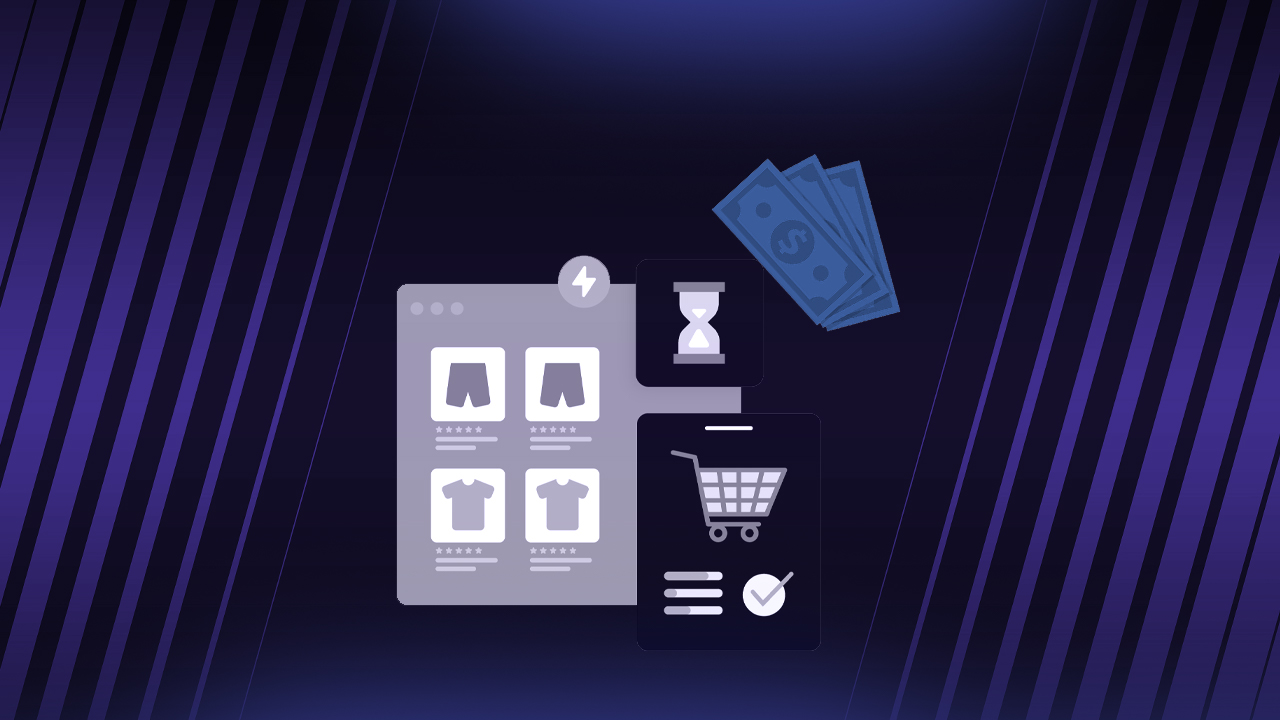BigCommerce made an important announcement that marks a new phase in its journey on July 31, 2025. The company has introduced a new parent brand called Commerce, which now brings together BigCommerce, Feedonomics and Makeswift under one umbrella. The goal is clear: to create an open, AI-driven platform that helps online businesses grow with more speed, intelligence, and flexibility.
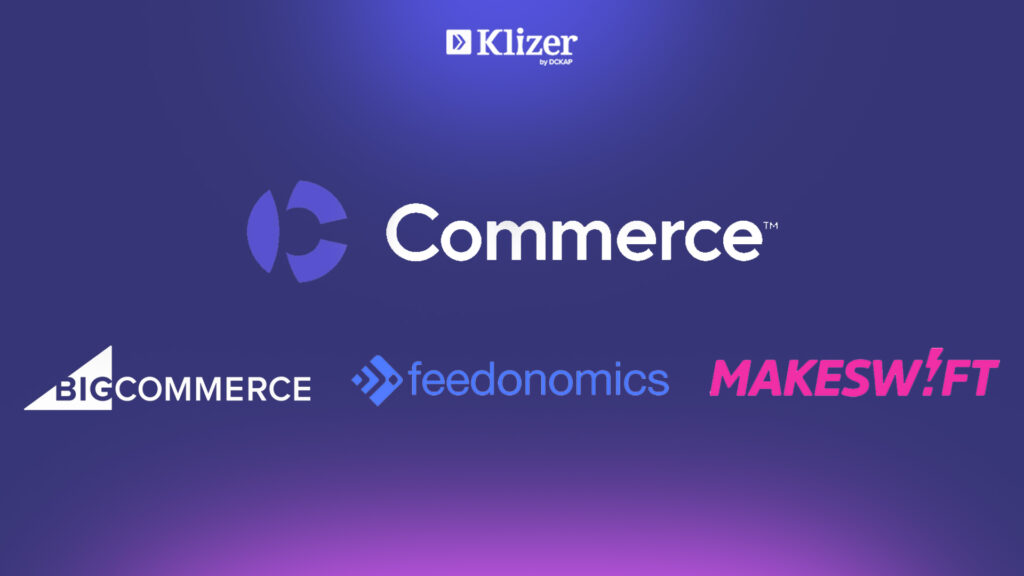
In this blog, explore what’s changed, why now and what it means for merchants and agencies.
ON THIS PAGE
Understanding “Commerce”
The newly formed parent company, Commerce, now includes:
- BigCommerce – The core ecommerce platform running thousands of online stores across B2C and B2B. It is known for its flexibility, open SaaS approach, and wide range of features.
- Feedonomics – A product feed optimization platform that ensures proper distribution and management of product listings across Google, Amazon, Meta, and many other channels.
- Makeswift – A visual website builder for headless commerce. It gives teams a way to build and update storefronts without heavy development resources.
These three companies continue to be independent solutions to their user base, but now they are brought together under one unifying vision.
This is much more than just a change of name, according to BigCommerce leadership. It is about aligning around a common mission: supporting businesses by providing a connected, AI-powered commerce platform that lets them scale on their own term.
Why This Change, and Why Now?
eCommerce is a rapidly evolving field. One greatest shifts in the recent past is the increasing use of AI in everything from product discovery to customer service.
We’re also entering the era of agentic commerce — where AI-based tools, digital assistants, and smart algorithms play an increasing role in how customers shop and decide.
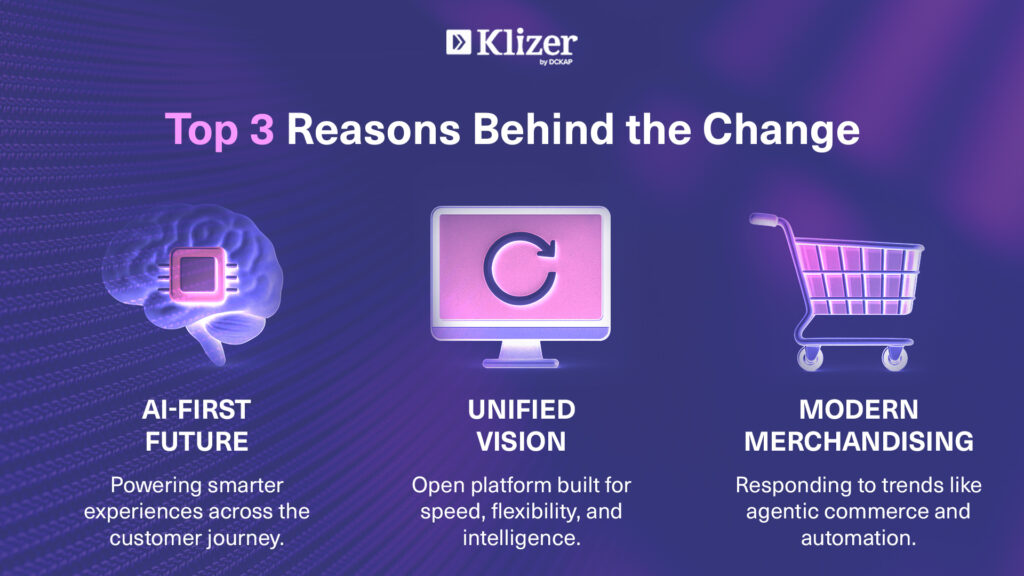
BigCommerce, then, through this move to become a part of Commerce, is responding to these trends. It wants to help the merchants adapt by providing an open platform that’s ready for the next stage of commerce.
The company has already made moves in this direction. In recent months, it has announced new partnerships with tech companies like Google, Microsoft, PayPal, and Perplexity AI to bring intelligence into experiences across the customer journey.
This new brand is now giving them a more concrete starting point to build upon and grow such efforts.
How Commerce Compares to Other Platforms
1. Shopify
Shopify is the largest player in the ecommerce space and is growing fast. It is also investing heavily in AI tools, including its assistant, Sidekick. But, Shopify tends to hold more control over the tools merchants will use and often requires sellers to use specific in-house services.
Contrary to this, Commerce emphasizes openness. Merchants can choose the tools that best fit their needs — something that appeals to businesses looking for flexibility and more control.
2. Salesforce Commerce Cloud
Salesforce targets enterprise-level retailers and offers a fully integrated suite of tools that include AI-powered features in commerce, CRM, and marketing. The platform is robust yet costly, and in many cases, more complex to implement.
Commerce has positioned itself as the more accessible and flexible option for growing brands, especially those in the mid-market who require strong tools, but don’t want to deal with the overhead of a full enterprise stack.
3. Shopware
Shopware has been growing strongly this year, and especially in North America. Like Commerce, it promotes openness and flexibility. Shopware has recently reported more than 300% growth in the U.S. in the first half of 2025. This data indicates that there is a great demand for platforms that provide merchants with more control.
What This Means for Merchants and Agencies
1. Better Integration
Having BigCommerce, Feedonomics, and Makeswift under one roof means better alignment between tools. Expect improvements in how product data flows between your store and sales channels, and faster development while launching or updating front-end experiences.
2. Smarter AI Capabilities
By positioning Commerce as an AI-first platform, we expect to see more built-in features to help merchants with things like:
- Personalized product recommendations
- Smarter search
- Automated content creation
- Inventory or pricing suggestions based on data
These are time-saving features with the potential of enhancing performance — even for small and mid-sized teams.
3. Continued Flexibility
BigCommerce was always flexible and stood for an open approach to building online stores. That has not changed. If anything else, Commerce is doubling down on the idea that businesses should be able to select the tools and structure they feel work best for them.
Starting with a headless setup, connecting third-party apps, or building out your own custom workflow, Commerce is designed to support such freedom.
4. No Huge Changes for Current BigCommerce Users
If you are already using BigCommerce, then you probably don’t have to worry much. Your store remains as it is. You might start seeing the Commerce logo and potential benefit from faster product updates; however you’re not being asked to switch platforms or change your setup.
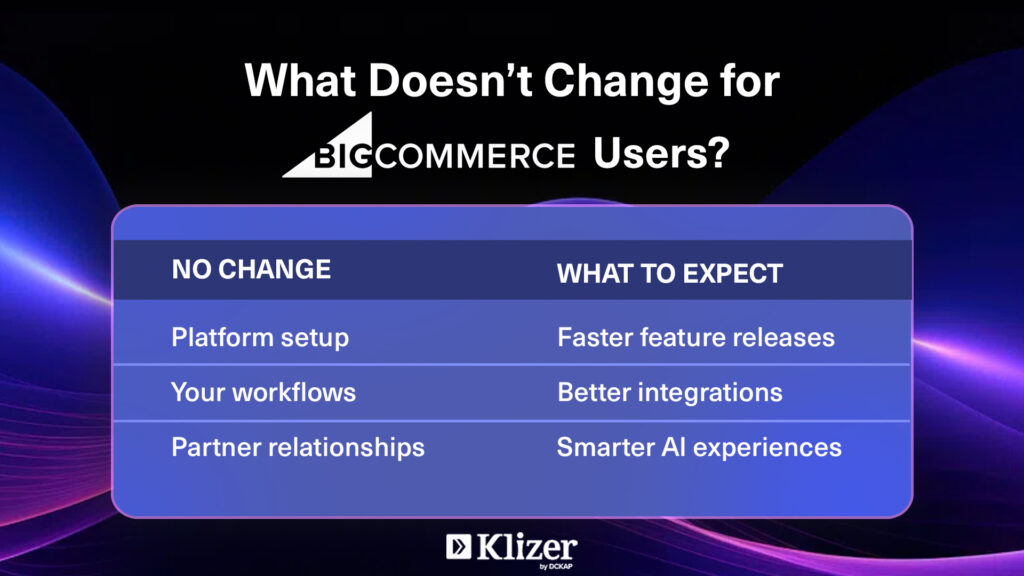
Think of it like when Google went and it created Alphabet. The tools you use remain the same — they’re just now part of a broader company structure.
A Positive Step Forward for the ecommerce Community
As a BigCommerce partner, we at Klizer see this as a strong and necessary step forward.
The pace of change in the ecommerce industry is getting quicker and aggressive, and platforms need to adapt to keep up with this. Commerce shows everyone that BigCommerce is in no way sitting back; it is looking forward and building for the next stage of online selling.
At the same time, this change stays true to what many of us already appreciate about BigCommerce: an open, flexible, and partner-friendly approach.
Whether you’re a fast-growing brand, a B2B agency, or BigCommerce partner agency like us, Commerce gives you options, better tools, and a clear direction.
Final Thoughts
One month after the launch of Commerce, the response from the ecommerce community has mostly been positive. The market is in the process of adjusting, and the platform has already started releasing updates that supports its new direction.
At Klizer, we also provide enterprise ecommerce solutions for companies that need flexible and scalable tools. If you want to know more, explore our BigCommerce development services or contact the Klizer team today.




